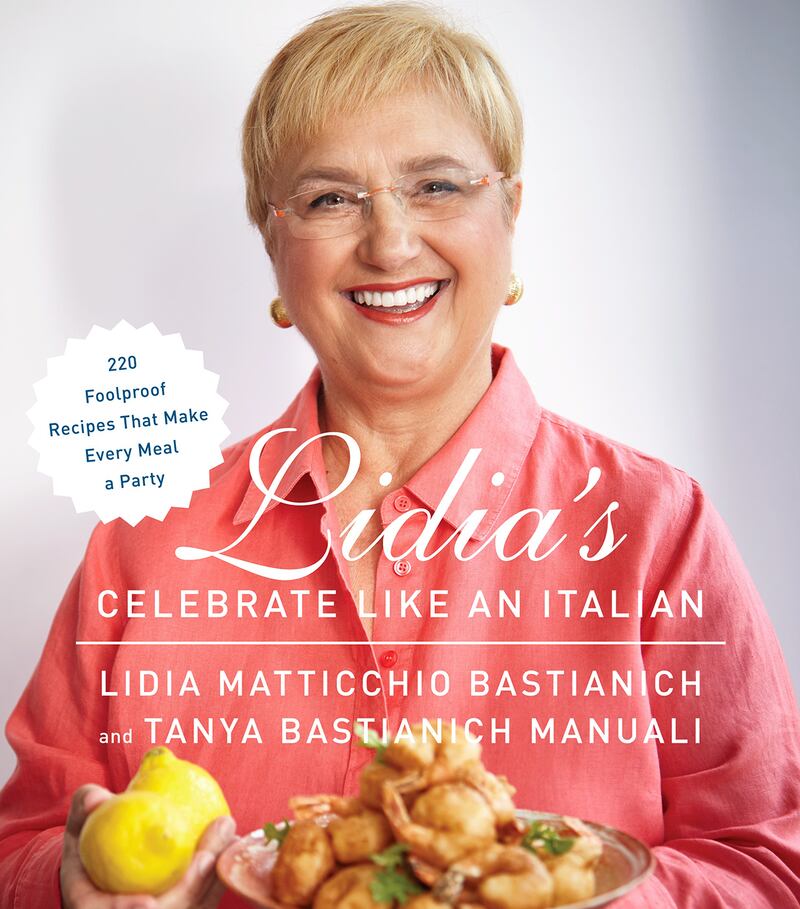When Lidia Bastianich tells you to eat the pasta, you should eat the pasta.
To be honest I wasn’t even that hungry but when the queen of Italian cooking is helping you to order a late lunch, you should accept her advice and be grateful. And for the record, eating the pasta—two large pasta discs held together by a thin layer of gooey taleggio cheese with a truffle and butter sauce—was definitely the right decision.
In between bites, seated at the capacious bar of her award-winning Chelsea restaurant Del Posto, which she owns with celebrity chef Mario Batali and her son Joe Bastianich, we chatted about, of course, food and her prodigious culinary career.

Nearly 20 years ago, thanks to her award-winning PBS shows, Bastianich became a food star and introduced countless Americans to real Italian cooking, which even then was dominated by ubiquitous red sauce and pasta dishes. She credits Julia Child for her TV break. After coming to one of Bastianich’s restaurants, Child “wanted me to teach her how to make risotto and then she had me on her show. The producer then said ‘you’re pretty good. How about a show of your own?’ And that’s how it evolved,” she remembers. Child “encouraged me. She said ‘Lidia, you do for Italian cuisine what I do for French.’ We remained friends.”
In real life, Bastianich has a no-nonsense but warm demeanor, which she exudes on her show. Countless hours spent watching her on TV gave me the false sense that we were old friends and at times during our meal, as she doted on me, it felt like I had found my long-lost nonna.
“A lot of adults tell me ‘I watched [the show] since I was a kid with grandma.’ You know what that tells me? It’s been a few years,” she jokes. “It pleases me because food is all about bringing people together and relating to each other,” she adds more seriously.
But even after decades of cooking on TV, running a restaurant empire and helping to start the wildly popular chain of Eataly stores, she insists that she still enjoys cooking at home. In fact, she just published her eleventh book, Lidia’s Celebrate Like an Italian, which she co-wrote with her daughter, Tanya Bastianich Manuali, and includes 220 recipes for everything from cocktails to soup to dessert. “I haven’t invented one of them,” she admits. “I modified some. I’ve changed a little bit here and there.”

If anything, she’s too modest and was very concerned about making the recipes as approachable as possible. “I take these recipes and simplify them as much as I can,” she says, since she actually wants the reader to learn them and enjoy using them. While in her restaurants, the emphasis is the opposite, it’s “to create that moment that the guest will not be able to do at home.” Most of the dishes at Del Posto certainly would fit into that category. Speaking of which, when I try to get her to order more food for herself, in true grandmother fashion, she dodges my suggestions and insists “I can talk while you eat.”
While I enjoy a delicious heirloom tomato salad, the aforementioned pasta and perfectly cooked swordfish fillets, she shares with me her family’s fascinating story of coming to America. She was born in Istria, which before World War II was part of Italy, but afterwards became part of communist Yugoslavia. Her family fled to Italy and lived in a refugee camp for two years before emigrating to America when she was 12. It’s an experience that she thinks a lot about today as the country debates its policies about letting in immigrants. “Most of us are immigrants except for the Indians,” she says. And for her that struggle is personal and one that is wrapped up with being a chef. “Food is all about the story of a people through the ages,” she reminds me.
When her family got to America she was in for a surprise. “The Italian food I didn’t recognize it when we first came here,” she says since it was so different than what she had grown up eating. She did, however, immediately fall in love with boxed cake mixes that she would whip up each night. Catholic Relief Services put them up in a hotel for three weeks when they first arrived and then her father found a job and a small apartment in Queens that they moved into.
She’s reticent to tell me more, since she’s working on a memoir that should be out next year, which will go into greater detail about her family’s story and her rise to culinary stardom. While I’m a bit disappointed, Bastianich promises we’ll meet next year to discuss it. I can’t wait.





